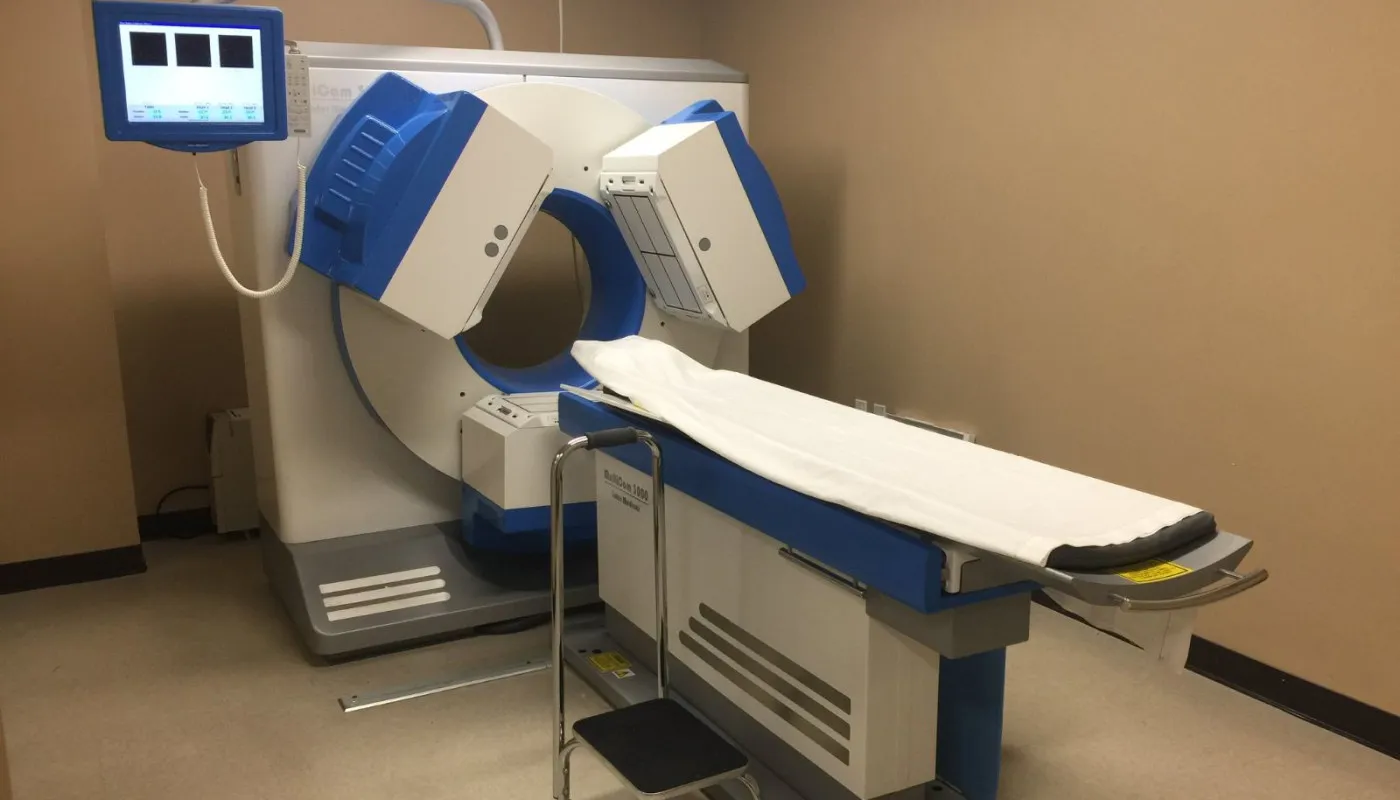Narcissism treatment focuses on addressing deep-seated insecurities, improving empathy, and building healthier relationships. Therapy helps individuals with narcissistic tendencies understand and manage their behavior, fostering personal growth. Treatment often includes exploring past trauma, improving emotional regulation, and developing tools for maintaining meaningful connections.
Ads
More Info
Advertisement Disclosure
Our website is funded by advertisers who pay for prominently labeled placements.
Read More8 Rehab Centers were found
Filters
Locations
- Los Angeles(+98)
- Culver City(+14)
- Westlake Village(+13)
- Woodland Hills(+11)
- Beverly Hills(+10)
- Santa Monica(+9)
- Sherman Oaks(+7)
- West Hollywood(+6)
- Malibu(+5)
- Chatsworth(+5)
- Pasadena(+5)
- Encino(+5)
- Redondo Beach(+4)
- Lancaster(+4)
- Reseda(+4)
- Studio City(+4)
- Northridge(+3)
- San Mateo(+3)
- Lynwood(+3)
- Vernon(+3)
- Van Nuys(+3)
- Tarzana(+3)
- North Hollywood(+3)
- Glendale(+3)
- Gardena(+3)
- Riverside(+3)
- Granada Hills(+2)
- Shadow Hills(+2)
- Venice(+2)
- Orange County(+2)
- Pomona(+2)
- West Hills(+2)
- Valley Village(+2)
- Burbank(+2)
- Brentwood(+2)
- Long Beach(+2)
- Sun Valley(+1)
- Torrance(+1)
- San Jacinto(+1)
- San Pedro(+1)
- Upland(+1)
- Whittier(+1)
- Toluca Lake(+1)
- Thousand Oaks(+1)
- Simi Valley(+1)
- Mission Viejo(+1)
- Acton(+1)
- Beaumont(+1)
- Wilmington(+1)
- Panorama City(+1)
- Anaheim(+1)
- Laguna Hills(+1)
- Inglewood(+1)
- Alhambra(+1)
- Rosemead(+1)
- Maywood(+1)
- Manhattan Beach(+1)
- Monterey Park(+1)
- Claremont(+1)
- Covina(+1)
- La Puente(+1)
- Pico Rivera(+1)
- San Fernando(+1)
- Azusa(+1)
- Santa Fe Springs(+1)
- Glendora(+1)
- Agoura Hills(+1)
- El Segundo(+1)
- Duarte(+0)
- Sunland(+0)
- Downey(+0)
- Cudahy(+0)
- El Monte(+0)
- Compton(+0)
- Hermosa Beach(+0)
- Cerritos(+0)
- Calabasas(+0)
- Bellflower(+0)
- Bell Gardens(+0)
- Avalon(+0)
- Arcadia(+0)
- Altadena(+0)
- Paramount(+0)
- South El Monte(+0)
- Walnut(+0)
- West Covina(+0)
- Santa Clarita(+0)
- San Gabriel(+0)
- San Dimas(+0)
- Rolling Hills(+0)
- Orange(+0)
- Hawaiian Gardens(+0)
- Palmdale(+0)
- Norwalk(+0)
- Montebello(+0)
- Lakewood(+0)
- South Pasadena(+0)
- Carson(+0)
- Hawthorne(+0)
Conditions
- Drug(+278)
- Alcohol(+219)
- Mental Health(+195)
- Opioid(+193)
- Cocaine(+184)
- Trauma(+180)
- Methamphetamine(+177)
- Benzodiazepines(+174)
- Heroin(+173)
- Prescription Drugs(+159)
- Depression(+152)
- Anxiety(+149)
- Xanax(+145)
- Synthetic Drugs(+138)
- PTSD(+133)
- Adderall(+131)
- Marijuana(+112)
- Bipolar(+109)
- Ecstasy(+104)
- MDMA(+99)
- Behavioral Health(+93)
- LSD(+93)
- Psychedelics(+91)
- Fentanyl(+71)
- Stress(+71)
- OCD(+69)
- Personality Disorders(+63)
- ADHD(+61)
- Gambling(+38)
- Eating Disorders(+35)
- Anorexia(+34)
- Binge Eating Disorder(+34)
- Bulimia(+33)
- Schizophrenia(+32)
- Gaming(+28)
- Internet Addiction(+27)
- Sex Addiction(+25)
- Burnout(+23)
- Pornography(+22)
- Shopping(+10)
- Narcissism(+8)
Insurances
- BlueCross BlueShield(+129)
- Aetna(+126)
- Anthem(+105)
- Cigna(+105)
- United Healthcare(+66)
- Humana(+63)
- Optum(+53)
- Medicaid(+53)
- MHN(+51)
- Magellan Health(+47)
- Kaiser Permanente(+39)
- Medicare(+31)
- GEHA(+31)
- ComPsych(+29)
- Highmark(+25)
- AmeriHealth(+13)
- Tufts Health(+11)
- Oscar(+9)
- CareFirst(+9)
- Molina Healthcare(+8)
- Intermountain Healthcare(+6)
- Beacon Health Options(+2)
- UMR(+2)
- NYSHIP(+2)
- ILWU(+2)
- Geisinger(+2)
- Empire Life(+2)
- Empire BCBS(+2)
- Bright Health(+2)
- GuideWell(+1)
Therapies

$175

call for price - 6-8 weeks

$7,500 - $45,000 - 5-30+ days

Call for Rates - 30 days

$60,000 per month - 30-60 days

Private Room: $45,000- $55,000
Narcissism Treatment in Los Angeles
Narcissistic traits exist on a spectrum, from healthy self-confidence to Narcissistic Personality Disorder (NPD), a condition that deeply impacts relationships, emotional regulation, and self-perception. While many people associate narcissism with arrogance and self-absorption, it often masks deeper insecurities, trauma, or a fear of vulnerability.
Individuals with narcissistic tendencies may struggle with empathy, criticism, and maintaining healthy relationships. Narcissism treatment focuses on helping individuals develop self-awareness, improve emotional regulation, and build meaningful, authentic connections with others.
Los Angeles offers specialized therapy programs for individuals with narcissistic traits or NPD, as well as support for partners and family members affected by narcissistic behaviors.
Understanding Narcissism and Its Effects
Narcissistic Personality Disorder is characterized by:
- A grandiose sense of self-importance—believing one is superior or entitled to special treatment.
- A deep need for admiration and validation—seeking constant approval from others.
- A lack of empathy—difficulty recognizing or caring about others` emotions.
- A hypersensitivity to criticism—reacting with anger, defensiveness, or shame when challenged.
- Manipulative or controlling behaviors—using others to maintain a sense of power or superiority.
- Difficulty maintaining close relationships—struggles with trust, emotional depth, or reciprocity.
Many individuals with narcissistic traits are unaware of their impact on others, while others may recognize these behaviors but feel powerless to change. Treatment can help address underlying emotional wounds and foster healthier interpersonal dynamics.
When Narcissism Treatment is Necessary
Not everyone with narcissistic traits requires treatment, but therapy is beneficial when:
- Relationships suffer due to arrogance, manipulation, or emotional detachment.
- An inability to accept criticism leads to anger, avoidance, or hostility.
- A deep fear of failure or rejection drives perfectionism and control.
- Emotional outbursts, mood swings, or self-destructive behaviors occur.
- There is a pattern of exploiting or disregarding others` needs.
Many individuals with narcissistic tendencies seek treatment not because they recognize the problem themselves but due to relationship issues, professional difficulties, or emotional distress.
Effective Treatment Approaches for Narcissism
Narcissism treatment focuses on developing self-awareness, improving emotional regulation, and building empathy. Some of the most effective approaches include:
Cognitive Behavioral Therapy (CBT) helps individuals recognize distorted thought patterns related to entitlement, superiority, or control. Therapy focuses on replacing these thoughts with healthier perspectives.
Schema Therapy explores deep-rooted emotional wounds and childhood experiences that contribute to narcissistic traits. Many individuals with NPD developed their behaviors as a defense mechanism against early neglect, criticism, or trauma.
Dialectical Behavior Therapy (DBT) teaches emotional regulation skills, helping individuals manage anger, impulsivity, and frustration without resorting to manipulation or aggression.
Empathy Training focuses on improving interpersonal relationships by teaching perspective-taking, emotional validation, and social reciprocity. This can be especially beneficial for individuals who struggle to connect with others authentically.
Group Therapy allows individuals to receive feedback in a structured, supportive environment, helping them recognize their impact on others and practice healthier interactions.
For individuals with severe NPD or co-occurring mental health conditions (such as depression, anxiety, or substance abuse), long-term psychotherapy or specialized treatment programs may be necessary.
Addressing the Emotional Root Causes of Narcissism
While narcissistic behaviors often appear as confidence, dominance, or self-importance, they frequently mask deep insecurities, fear of failure, and unresolved emotional wounds. Many individuals with narcissistic traits:
- Experienced childhood neglect, criticism, or conditional love, leading to the belief that self-worth depends on external validation.
- Struggle with intense feelings of shame or inadequacy, which they attempt to cover with grandiosity or control.
- Use defense mechanisms such as denial, projection, or blame-shifting to avoid confronting emotional pain.
Therapy helps individuals break these patterns, develop self-compassion, and establish a more stable, authentic sense of self-worth.
Improving Relationships Through Treatment
One of the biggest challenges individuals with narcissistic traits face is maintaining meaningful, healthy relationships. Many struggle with trust, emotional vulnerability, or viewing others as equals rather than as sources of validation.
Treatment can help improve relationships by:
- Teaching active listening and emotional validation.
- Encouraging vulnerability and healthy communication.
- Helping individuals recognize and correct manipulative behaviors.
- Building respect for others’ boundaries and perspectives.
For those in relationships with someone who has narcissistic traits, couples therapy can be beneficial in establishing healthier dynamics and emotional balance.
Overcoming Resistance to Therapy
Many individuals with narcissistic traits resist treatment due to:
- A belief that they do not need help or that others are the problem.
- Fear of facing vulnerability, criticism, or deep emotions.
- Denial of destructive behaviors and their impact on relationships.
However, those who commit to therapy often find that self-awareness and emotional growth lead to a greater sense of fulfillment, improved relationships, and reduced internal conflict.
Long-Term Recovery and Personal Growth
Since narcissistic traits are often deeply ingrained, long-term therapy and consistent self-reflection are essential for lasting change. Some strategies for continued growth include:
- Journaling to track emotional responses, triggers, and progress.
- Practicing gratitude and shifting focus from self-centered thoughts to appreciating others.
- Seeking feedback from trusted individuals and being open to constructive criticism.
- Engaging in acts of service or volunteer work to develop genuine empathy.
Many individuals who commit to treatment find that reducing narcissistic behaviors leads to greater emotional stability, deeper relationships, and improved self-worth based on authenticity rather than external validation.
Finding Narcissism Treatment in Los Angeles
Los Angeles offers a variety of treatment options for individuals struggling with narcissistic traits, including:
- Individual therapy with NPD specialists.
- Group therapy focused on interpersonal growth.
- Couples counseling for relationship improvement.
- Intensive treatment programs for severe narcissistic behaviors.
Seeking treatment is the first step toward breaking destructive patterns and developing a healthier, more balanced sense of self. Many clinics in Los Angeles offer free consultations to help individuals explore the best therapeutic approach.
Frequently Asked Questions
Can narcissism be treated?
Do people with narcissism seek therapy?
Is there a cure for narcissistic personality disorder?
How does narcissism affect relationships?
Ads
More Info
Advertisement Disclosure
Our website is funded by advertisers who pay for prominently labeled placements.
Read More







































